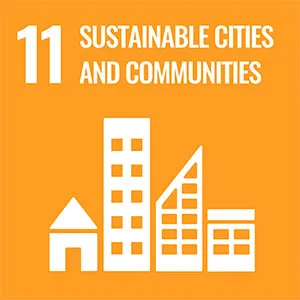MSc Vehicle Engineering
The master's programme in Vehicle Engineering covers all aspects from vehicle design, functions and dynamic properties, to systems for safety and comfort, and vehicles as part of the transport systems. Students can specialise in Automotive or Railway Engineering. Graduates have global career opportunities and the skills to contribute to innovative and sustainable solutions that minimise the vehicle industry's environmental impact.

Vehicle Engineering at KTH
Vehicle Engineering is a broad area of engineering science driven by an ever-increasing degree of mobility in the world. At the same time, the transportation sector is facing the challenge of minimising its environmental impact, requiring new, innovative solutions and capable engineers. This field will continually demand specialists to drive the transition to sustainable road and rail transport. This shows through the new vehicle design and vehicle concepts from established manufacturers as well as new start-up companies, especially connectivity, electrification, self-driving, and AI technology is changing the way we design, build, test and operate new vehicles.
The master's programme in Vehicle Engineering deals with vehicle design, functions, requirements and the evaluation of different types of road and rail vehicles. Vehicle dynamics properties and the interaction with the road or track, as well as active systems for safety, monitoring and comfort, are essential topics within the programme. The programme also deals with vehicles as part of transport systems and their interaction with humans and society.
The programme includes two specialisations: Road Vehicles and Rail Vehicles. The Road Vehicle specialisation focuses on all road vehicles, concentrating mainly on cars, trucks and buses. In the Rail Vehicle specialisation, the system aspect is critical, as the different parts of a railway system – vehicle, track, electrification and signalling – all strongly influence each other.
The programme is based on lectures, assignments, simulations, experiments and team-based project work. The first year focuses on providing a common base in vehicle engineering, including some mandatory courses for all students and mandatory courses for each specialisation. In addition to the mandatory courses, you can choose several conditionally elective courses to create your own profile, for example, related to vehicle design, functional design, structural design, control theory, electric vehicles and transport systems.

The second year consists mainly of elective courses, a project course and the final master's degree project, which can either be undertaken at a university or, more commonly, a company. The student is encouraged to search for a suitable project in the industry, and KTH will provide assistance and suitable points of contact.
This is a two-year programme (120 ECTS credits) given in English. Graduates are awarded the degree of Master of Science. The programme is given mainly at KTH Campus in Stockholm by the School of Engineering Sciences (at KTH).
Courses in the programme
The courses in the programme cover topics such as vehicle systems and their components, vehicle-road/track interaction, dynamics, modelling and simulation, analysis, control, validation, experiments and team-based project work.
Courses in the master's programme in Vehicle Engineering
Future and career
The master's programme in Vehicle Engineering provides an excellent basis for pursuing a career in the global automotive and rail vehicle industry, at consulting companies, transportation authorities, fleet operators, and universities and institutes active in this field. Vehicle engineering is a research-intensive area in which graduates from the programme work with, for instance, design, development, calculation and testing of vehicles, vehicle components and active vehicle systems. Graduates also work with systems analysis and energy and environmental assessments of vehicles and transport systems.
The cooperation between the Swedish vehicle industry and the Division of Vehicle Engineering and Technical Acoustics is very close. There are several major ongoing research programmes involving KTH, key manufacturers and the transport administration. Graduates from the programme work at companies such as Volvo Cars, Scania, Volvo Group Trucks Technology, Bombardier Transportation, CEVT, Daimler, BMW, Williams, Koenigsegg, Mathworks, Altran, Semcon, SNC-Lavalin Rail & Transit, Alstom, SJ, TÜV Süd, Öhlins, Continental, Bosch etc. Due to the strong need for research within this field, each year, at least a handful of graduating students pursue a career in academia through doctoral studies at KTH or other prominent academic institutions, research institutes or as industrial PhD students.
Sustainable development
Graduates from KTH have the knowledge and tools for moving society in a more sustainable direction, as sustainable development is an integral part of all programmes. The three key sustainable development goals addressed by the master's programme in Vehicle Engineering are:



Within the master's programme in Vehicle Engineering, you will gain knowledge that will allow you to participate in solving the challenges facing vehicles and transport systems of the future concerning, for example, sustainable development goals such as good health and well-being, industry, innovation and infrastructure, and sustainable cities and communities. You will learn about the role of vehicles in transport systems and society, their subsystems, structures and functions, how to design, construct and evaluate their characteristics for different transport tasks, and how these affect factors such as safety, economy, energy efficiency and environmental aspects.
New, innovative technical solutions and knowledgeable engineers are needed to enable a transition to sustainable road and rail transport. As a vehicle engineer, you can work within global companies on, for instance, design, development, environmental aspects, calculation, testing and assessment of vehicles and transport systems, with sustainability representing an essential aspect of the work. With your acquired vehicle engineering knowledge, you can contribute to the development of environmentally friendly, resource-efficient, smart and safe vehicles and mobility solutions, which are essential components of an integrated transport system for a sustainable society.
Faculty and research
The division of Vehicle Engineering and Technical Acoustics is responsible for the master's programme in Vehicle Engineering and most of the courses in the programme.
Road Vehicle research group
At the division the Road Vehicle research group is focusing their research on vehicle conceptual design and vehicle dynamic analysis, including both interaction with the environment, human interaction and system-of-systems. In summary:
- Innovative vehicle concepts: for example, greener, smarter and safer over-actuated vehicles.
- Driver-vehicle interaction: for example, subjective-objective correlation, driver modelling, driving simulators and remote driving.
- Vehicle dynamics control: optimising, for example energy, safety and comfort depending on driving conditions and transportation task.
- Vehicle system and environment interaction: for example, tyre-road modelling, energy losses, wear, active suspension, crosswind and optimality in design configurations.
Conceptual Vehicle Design research group
The Conceptual Vehicle Design research group focuses on translating societal needs for transport functionality into a plan for sustainable vehicle solutions. Including the development of methods to link effects across different system scales so that vehicles may be optimal from a broader transport perspective. The multifunctional design also involves many questions about how to model different functions with appropriate non-biased fidelity and include secondary knock-on effects when evaluating the impact of change on a system.
Rail Vehicle research group
The Rail Vehicle research group focuses on the dynamic interaction between rail vehicles (trains) and track. Modelling and simulation play a major role in predicting system behaviour, optimising system parameters, predicting maintenance needs, total cost of operation, and improving system performance like ride comfort, running stability and vehicle-track interaction forces. In summary:
- Active suspensions.
- Mechanics of the wheel rail contact, new contact theories and implementing theories for wear and high cycle fatigue in the models.
- Dynamic interaction between rail vehicle pantographs and catenary.
- Condition-based maintenance based on predictions with digital twins and/or machine learning.
- How to make train design and operation even more energy and power efficient.
Sound and Vibration research group
The Sound and Vibration research group work on topics like flow acoustic interaction with particular focus on sound propagation in confined flows like ducts and the respiratory system, and on acoustic design as an enabler for resource efficient vehicles. Numerical methods for, and modelling of coupled acoustics and vibration applications, including efficient Finite Element modelling of large scale problems, design optimization and acoustic materials or metamaterials. The gruop also work on transportation noise, including the development of a mixed experimental-numerical approach, noise impact assessment, feeding into dynamically-controlled traffic strategies. In summary:
- Flow acoustics
- Acoustic design
- Numerical methods for coupled acoustics and vibration applications
- Noise impact assessment
- Multi-functional structural components








